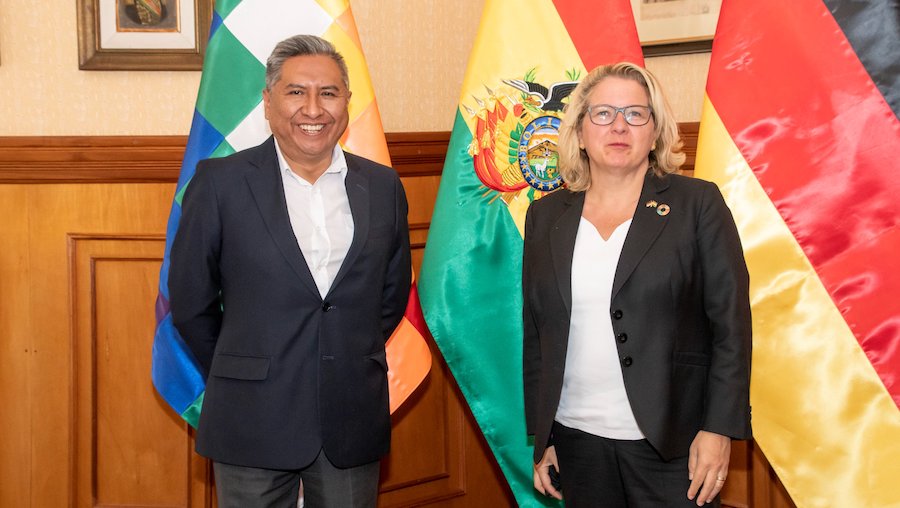Valentina Ruiz Leotaud | August 28, 2022 |

Germany’s Federal Development Minister Svenja Schulze and Bolivia’s Minister of Foreing Affairs Rogelio Mayta. (Image by Bolivia’s Ministry of Foreing Affairs, Twitter).
During a meeting with Bolivian authorities, Germany’s Federal Development Minister Svenja Schulze announced that her government will provide 20 million euros to the Andean country to work towards the protection of the Amazon against illegal mining.

“Half the remaining rainforests on our planet are in the Amazon region. Protecting them is a task for all of humanity because if the rainforests are not protected we have no way of protecting the climate either,” Schulze said. “It is our responsibility to support our partners in the riparian countries of the Amazon.”
During her visit, Schulze stopped at Madidi, a 19,000 square kilometre national park located in the upper Amazon river basin and which is part of one of the largest protected areas in the world. The park, however, is subject to unregulated extractive activities that threaten both the environment and Indigenous peoples.
The German official – who served as minister of environment during the Angela Merkel administration from 2018 to 2021 – also met with Indigenous leader Ruth Alipaz. During the encounter, Alipaz denounced local authorities have been granting oil exploration licenses within 21 out of Bolivia’s 22 national parks, while illegal miners are also making their way inside protected areas without any kind of state control.
According to the Associated Press, Alipaz also told Schulze that harassment against environmental activists continues to grow.
In addition to receiving information on the status of natural reserves, the minister was briefed on the situation in Bolivian regarding clean energy developments. She, thus, pointed out that part of the funds her government is providing should be used to boost the South American country’s energy transition towards renewables.
No comments:
Post a Comment